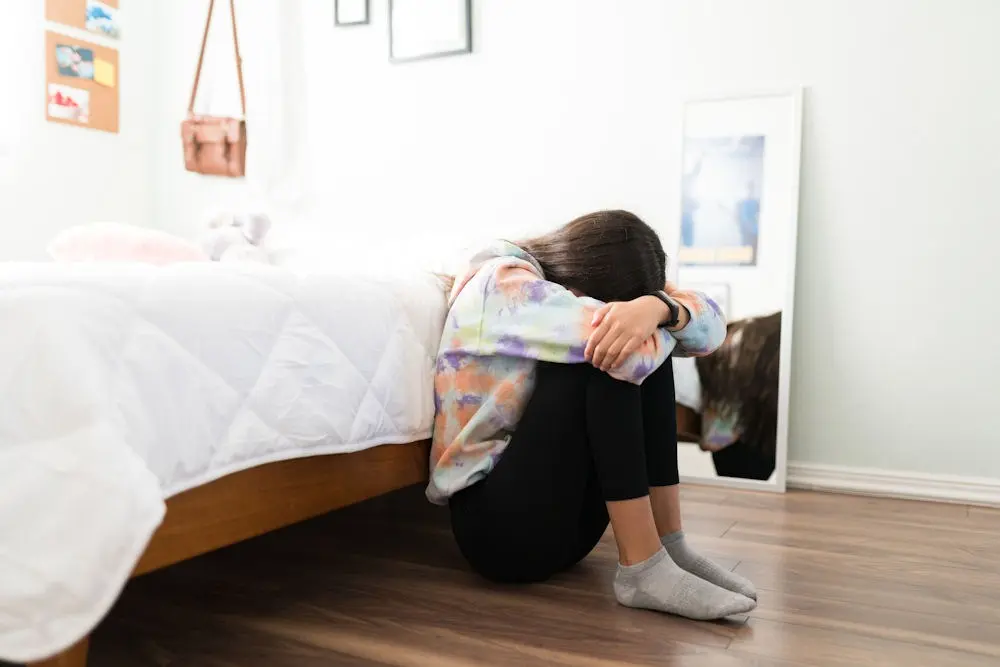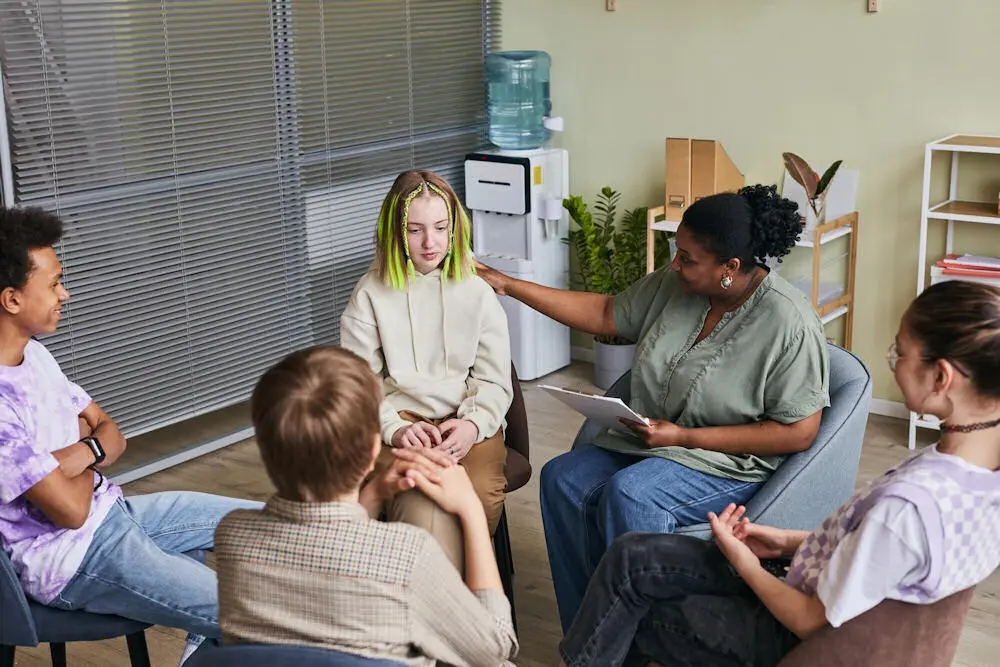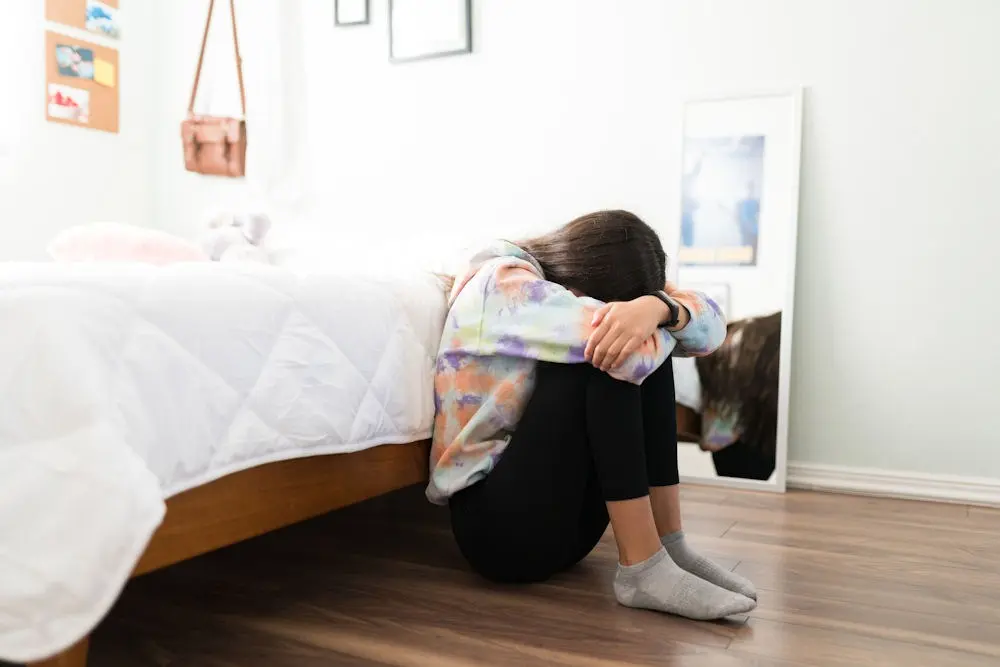Recognizing the signs your teen needs more than therapy is crucial when outpatient support is no longer enough. If your child continues to struggle with emotional distress, self-harm, or behavioral issues despite ongoing sessions, it may signal the need for intensive mental health treatment for teens.
The Massachusetts Center for Adolescent Wellness offers structured support through PHP and IOP programs—effective alternatives to outpatient therapy tailored to adolescent behavioral health. These higher levels of care include teen crisis intervention, clinical oversight, and personalized treatment. For guidance on evaluating options and preparing for this transition, explore our Parent Resources page. Early action can make all the difference, contact us today to get started!
Why Therapy Isn’t Always Enough for Teen Mental Health
While outpatient therapy provides meaningful support for many teens, it may fall short when emotional and behavioral issues intensify. If symptoms persist or escalate despite consistent sessions, more comprehensive care may be necessary. Conditions such as unresolved trauma, mood swings, suicidal ideation, or dual diagnoses often require daily therapeutic structure and oversight. In these cases, higher levels of care—like IOP or PHP—can offer the targeted, intensive support teens need to stabilize and heal.
Key reasons therapy alone may not be enough:
- Severity of symptoms: Intense emotional distress may exceed the capacity of weekly therapy sessions.
- Safety concerns: Risk of self-harm or suicidal behaviors calls for clinical monitoring.
- Lack of progress: Minimal improvement may indicate the need for more focused intervention.
- Family disruption: Behavioral issues that strain relationships may benefit from structured support.
- Dual diagnosis: Substance use combined with mental illness needs integrated treatment.
Recognizing when therapy isn’t enough is a vital step toward helping your teen receive the care they truly need. Early intervention at an appropriate level can foster safety, healing, and long-term growth.
8 Warning Signs Your Teen Needs More Than Therapy

When a teen’s emotional or behavioral challenges persist despite regular therapy, it may be time to consider a higher level of care, such as an Intensive Outpatient Program (IOP) or Partial Hospitalization Program (PHP). These structured settings offer daily support, clinical oversight, and a multidisciplinary approach suited for more serious mental health needs. Recognizing early warning signs is key to preventing crisis escalation and getting timely help.
Persistent mood instability
Frequent irritability, sadness, or emotional outbursts that don’t improve with therapy.
Self-harm or suicidal thoughts
Engaging in risky behaviors or expressing hopelessness.
Withdrawal from family and friends
Isolation, avoidance, or complete disengagement from social life.
Declining academic performance
My Sudden drop in grades, missing school, or inability to focus.
Substance use
Experimentation or regular use of alcohol, drugs, or vaping.
Extreme changes in sleep or eating
Insomnia, oversleeping, binge eating, or restricted intake.
Unmanageable behavior at home
Frequent defiance, aggression, or emotional dysregulation.
Lack of progress in therapy
No noticeable improvement after consistent outpatient support.
When to Transition from Therapy to a Higher Level of Care
Recognizing when to make the shift from outpatient therapy to a higher level of care can be challenging. Many parents worry they’re giving up on therapy too soon or wonder if their teen just needs more time. However, delaying intensive support can sometimes allow symptoms to worsen. A good rule of thumb is to assess whether your teen’s symptoms are improving, staying the same, or getting worse, even with consistent therapy.
Ask yourself:
- Is your teen regularly attending sessions, yet still struggling to cope day-to-day?
- Are school attendance, relationships, or basic functioning declining?
- Have there been any crises or safety concerns that required emergency intervention?
- Does your teen feel therapy isn’t helping anymore?
If you’ve answered “yes” to any of these, it may be time to explore programs that offer daily structure, therapeutic intensity, and ongoing clinical oversight. A higher level of care is not a failure—it’s a proactive step toward meaningful, lasting healing.
Levels of Care Overview
| Level of Care | Frequency | Support Offered | Best Fit For |
| Outpatient Therapy | 1–2x/week | Talk therapy, coping strategies | Mild symptoms, early intervention |
| IOP (Teens) | 3–5x/week | Group, individual therapy, skill-building | Moderate symptoms, functional disruption |
| PHP (Teens) | Daily (M–F) | Psychiatric care, full-day clinical support | Severe symptoms, safety concerns |
Early recognition empowers families to choose the right care level before problems escalate.
What Higher Levels of Teen Mental Health Care Look Like
When outpatient therapy isn’t meeting your teen’s mental health needs, higher levels of care offer more structured and intensive support. These programs—such as Intensive Outpatient Programs (IOP) and Partial Hospitalization Programs (PHP)—provide teens with daily access to therapeutic resources and professional guidance tailored to their emotional and behavioral challenges. Designed to stabilize symptoms, promote healing, and encourage long-term wellness, these programs are built on comprehensive, evidence-based frameworks.
Features of Higher-Level Teen Mental Health Care
- Intensive Structure: Multiple sessions per week, often daily, focused on emotional regulation, behavioral strategies, and skill development.
- Clinical Oversight: Supervised by licensed therapists, psychiatrists, and mental health professionals.
- Integrated Modalities: Combines group therapy, individual therapy, family involvement, and psychoeducation.
- Crisis Support: Immediate intervention for safety concerns, including self-harm or suicidal ideation.
- Academic and Social Balance: Supports school participation and social functioning during treatment.
These programs meet teens where they are, providing targeted care that goes beyond what traditional therapy can offer. Whether a teen is facing persistent mood instability, trauma, or substance use, higher levels of care promote meaningful recovery through consistency, collaboration, and compassionate expertise. Early intervention is key to long-term stability and well-being.
How the Massachusetts Center for Adolescent Wellness Supports Teens Beyond Therapy

The Massachusetts Center for Adolescent Wellness (MCAW) provides comprehensive, evidence-based mental health care tailored to the unique needs of teens and their families. Our programs go beyond traditional therapy by offering structured support through Partial Hospitalization (PHP) and Intensive Outpatient (IOP) services. These higher levels of care are designed to stabilize symptoms, promote emotional growth, and foster long-term wellness.
Why Choose MCAW
- Expert Team: Our clinical team includes licensed therapists, psychiatrists, and behavioral health specialists dedicated to adolescent care.
- Therapeutic Diversity: We offer a wide range of therapies, including CBT, DBT, trauma-focused therapy, art and music therapy, and family therapy.
- Family-Centered Approach: We involve parents and caregivers throughout the treatment process to support lasting change.
- Safe, Supportive Environment: Teens receive care in a nurturing setting that encourages openness and healing.
Core Therapies Offered
- Cognitive Behavioral Therapy (CBT)
- Dialectical Behavior Therapy (DBT)
- Trauma-Informed Therapy (including EMDR)
- Art and Music Therapy
- Family Therapy
- Mindfulness-Based Interventions
The team at the Massachusetts Center for Adolescent Wellness (MCAW) is made up of compassionate, highly trained professionals who specialize in adolescent behavioral health. Our multidisciplinary staff includes licensed therapists, psychiatrists, clinical social workers, and mental health counselors—all dedicated to helping teens navigate emotional challenges and build resilience. Each team member brings expertise in evidence-based modalities such as CBT, DBT, trauma-informed care, and family therapy, ensuring that every treatment plan is tailored to the unique needs of each adolescent.
We believe that healing happens through connection, and our team fosters a safe, supportive environment where teens feel heard, understood, and empowered. Collaboration is at the heart of our approach—our clinicians work closely with families, schools, and other providers to ensure continuity of care and long-term success.
FAQs: Understanding Next-Level Teen Mental Health Care
What is a higher level of care?
A higher level of care includes structured programs like Intensive Outpatient (IOP) or Partial Hospitalization (PHP), offering more support than weekly therapy.
Who benefits from these programs?
Teens experiencing mood instability, self-harm, trauma, or lack of progress in outpatient therapy may benefit from next-level care.
How often do sessions occur?
IOP typically meets 3–5 times a week, while PHP provides full-day care Monday through Friday.
Is academic support provided?
Yes, programs often coordinate with schools to support learning while in treatment.
How are families involved?
Family therapy and educational resources help strengthen communication and foster healing at home.
Where can I learn more?
Visit the Massachusetts Center for Adolescent Wellness for details on PHP, IOP, and parent resources.
Compassionate Guidance for Every Step of the Journey

Choosing a mental health program for your teen is one of the most important decisions you can make—and you don’t have to make it alone. At MCAW, we walk alongside families with compassion, clarity, and unwavering support. Whether you’re just starting to explore your options or actively seeking next-level care, our team is here to answer your questions, provide guidance, and help you feel confident in the next step. Your teen’s healing journey matters. Contact us today to get started. With the right care, they can find stability, rediscover their strengths, and thrive.







